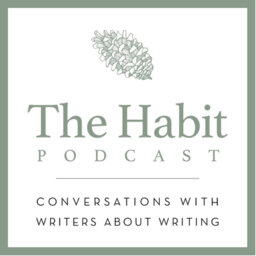Tish Harrison Warren and Doug McKelvey on The Liturgy of the Ordinary (from the Archives)
This archive episode of The Habit Podcast, from the first season, features a three-way conversation between Tish Harrison Warren, Doug McKelvey, and Jonathan Rogers. Tish is an Anglican priest, a former columnist for the New York Times and Christianity Today, a senior fellow at The Trinity Forum and the author of Prayer in the Night and The Liturgy of the Ordinary. Doug is best known as the author of the Every Moment Holy books. In this episode, Tish, Doug, and Jonathan talk about the liturgies of the writing life, finding meaning where it is to be found, and liturgy as a way of making room for mystery to assert itself.
In 1 playlist(s)
The Habit Podcast
Conversations with writers about writing, hosted by Jonathan Rogers.Social links
Follow podcast
Recent clips

Becca Jordan Adds Glory to the World
44:19

Curt Thompson Goes to the Deepest Place (from the Archives)
47:23

Andrew Roycroft's Calling Hasn't Changed.
37:28
 The Habit Podcast
The Habit Podcast